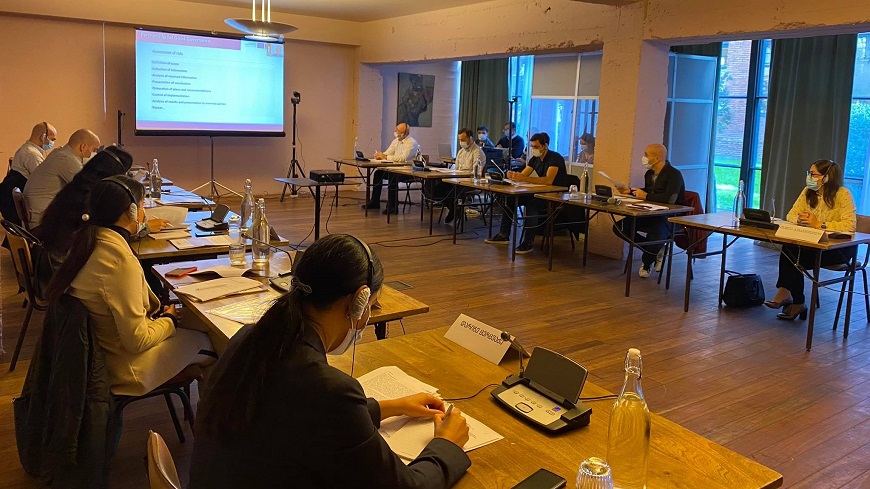The Council of Europe in cooperation with the State Security Service of Georgia organised a training of trainers on “Corruption Prevention in the Public Sector”, for the staff of the Anti-Corruption Agency within the State Security Service. The trainers trained in this occasion will, in turn, apply the new skills obtained to conduct training and awareness-raising on corruption prevention for the staff of Georgian municipalities.
Within their competence, the local municipalities are key players in the development and implementation of an effective anti-corruption policy, by promoting integrity and preventing conflict of interest, establishing effective reporting mechanisms, and managing corruption risks. This is clearly stated in the Anti-corruption Strategy of Georgia (2019), which clarifies that the international and national anticorruption requirements are also applicable to local governance.
As part of its mandate, under the Anti-Corruption Action Plan, to prevent and fight corruption offences committed by public servants in state institutions and local municipalities, the State Security Service of Georgia (SSSG), with its structural unit, the Anti-corruption Agency (ACA), is requested to organise information meetings in central and local self-government authorities for the prevention of corruption, and to raise awareness on corruption crimes.
It is in this context that this training of trainers aimed to prepare the staff of the Anti-corruption Agency to become local anti-corruption trainers. With the contribution of international Council of Europe expertise, participants got acquainted with specific training methods to ensure an effective transfer of knowledge. They benefited from this opportunity to discuss detailed processes for designing anti-corruption training programmes, setting learning objectives, and defining and applying a training methodology and various training techniques. They also had the chance to practice these skills through exercises incorporated in the event’s programme.
In addition to developing their training skills, participants also discussed substantive concepts of corruption prevention with the international Council of Europe experts. The main focus was placed on topics of particular importance for Georgia, such as corruption risk assessments in public institutions, corruption reporting mechanisms including whistleblowers and their protection, and methods for increasing the effectiveness of the implementation of anti-corruption measures, including awareness raising campaigns and cooperation with civil society organisations.
Highlights from the Technical Paper “Sharing good practices on prevention of corruption in public sector applied by relevant anti-corruption law enforcement agencies”, developed for the Anti-corruption Agency in connection with a previous training event on “Corruption Prevention in the Public Sector” (21-22 July 2020), were also presented during this event, thus ensuring continuity in the technical support provided and further enriching the discussion.
In direct follow-up to this activity, the local trainers thus prepared will organise awareness-raising workshops for representatives of local municipalities, with further support from the Council of Europe. These workshops will cover not only general anti-corruption concepts but also sectorial approaches (e.g. public procurement, infrastructural projects) for effective anti-corruption measures and their practical implementation. Two of these local (in-person) workshops are planned later in October and in November 2021 in Georgian regions, to serve as pilots, with the aim to identify main challenges and practical solutions and recommendations for preventing corruption at local level, and to promote closer cooperation between state institutions and local municipalities.
This is a part of a series of activities of the project designed to support the Georgian authorities to efficiently implement measures on corruption prevention in the public sector.



